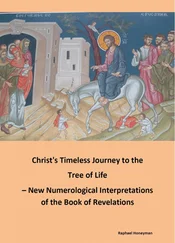This was the unimpressive educational record which Butler confronted in 1941, the war having only compounded the situation. School building had halted, while the evacuation programme had left 500,000 children in January 1940 getting no schooling at all. 33Butler inherited, however (and Beveridge exploited), powerful movements for reform. In the Labour movement, R. H. Tawney’s role was critical. Peter Hennessy describes him operating as ‘a kind of tweedy one man pressure group, producing ideas through a haze of herbal tobacco smoke pushing them gently in one forum after another until they caught on’. 34As early as 1922, under his influence, Labour published Secondary Education for All. In 1926 he was a member of the Board of Education’s consultative committee which in the Hadow report produced the same target – secondary education for all from the age of eleven and the raising of the school leaving age to fifteen (legislated for in 1936, but defeated by the outbreak of war); in other words the creation of something much closer to modern primary and secondary education. 35Secondary schools should be divided into selective grammars, promoting a ‘literary or scientific curriculum’, and non-selective secondary modern schools which would provide a more ‘realistic or practical trend in the last two years’. Hadow was followed in 1938 by Spens, another Board of Education report, which recommended an end to fees in all state schools and a tripartite division of secondary education into grammar, secondary modern and technical schools.
So while little happened to change the pattern of education in the 1930s, the pressure for growth in provision, and for a change in its nature, was on. And as Butler took over there was one other factor. The public schools were in crisis both conceptually and financially. They had been under attack since the First World War. In 1929, Robert Graves in his autobiography Goodbye to All That excoriated Charterhouse and the ‘fundamental evil’ of ‘what passed as the public school spirit’. By his account that included bullying, violence, adolescent homosexuality and a profound philistinism, despite a classics-based education, that left him with ‘an oppression of the spirit I hesitate to recall in its full intensity’. 36Graham Greene’s symposium The Old School joined the assault in 1934 and demand for the type of education offered by public schools began to decline. In the summer of 1939, Harrow decided to close a boarding house, cutting its size from 600 to 500 pupils, and the Journal of Education predicted that some newer public schools would find it difficult to survive. They were being challenged by the ‘improvement in the quality of instruction at ordinary secondary schools’, and were in trouble. Their claim to ‘a special fitness to rule’ was attacked by Charles Douie, a former assistant principal of University College London and old boy of Rugby, who said: ‘I cannot believe that the England of tomorrow will tolerate privilege in education’. 37
Faced by a mounting financial crisis, the public school heads turned for help to Sir Cyril Norwood, a former headmaster of Marlborough and Harrow, now chairman of the Secondary Schools Examination Council. He identified Harrow, Marlborough, Lancing, Tonbridge and Repton as public schools whose future was either under threat or in serious doubt 38and began to explore with the Board of Education the possibility of public funding in return for access. In the Spectator in late 1939 and early 1940 he acknowledged the ‘growing hostility’ to public schools. ‘It is hard to resist the argument that a State which draws its leaders in overwhelming proportions from a class so limited as this is not a democracy, but a pluto-democracy,’ he said, ‘and it is impossible to hope that the classes of this country will ever be united in spirit unless their members cease to be educated in two separate systems of schools, one of which is counted as definitely superior to the other.’ 39The defeat of the British Expeditionary Force in France brought forth powerful internal as well as external criticism. T. C. Worsley, a master at Wellington, railed: ‘We are where we are, and shall be where we shall be, owing, largely, if not wholly, to the privileged education which the ruling classes have received in the last forty years.’ He added: ‘If the public schools are national assets because of their leadership training qualities, what are we to think of those qualities when we survey the mess into which their leadership has brought us?’ 40To achieve a ‘common elementary education for all’ would be a great advance. David Low’s Evening Standard cartoons of Colonel Blimp, the epitome of the old school tie that had brought Britain through Munich to a war in which the early days saw nothing but defeat or the grimmest of survival, also helped damage the public schools’ standing.
Churchill at times felt that change was not only inevitable but necessary. He told the boys at Harrow in December 1940 that ‘after the war the advantages of the public schools must be extended on a far broader basis’. Early in 1941 the Sunday Dispatch reported him as arguing that they should return to their long-forgotten original purpose of providing education for poor scholars, and David Chuter Ede, the Labour minister and education specialist who was Butler’s number two, recorded in his diary in February 1942:
The PM was glad to know that public schools were receiving our attention. He wanted 60 to 70 per cent of the places to be filled by bursaries – not by examination alone but on the recommendation of the counties and the great cities. We must reinforce the ruling class – though he disliked the word ‘class’. We must not choose by the mere accident of birth and wealth but by the accident – for it was equally an accident – of ability. The great cities would be proud to search for able youths to send to Haileybury, to Harrow and to Eton. 41
Butler’s own attitude to public schools is defined by his biographer, Anthony Howard, as ‘agnostic’. In early 1942 he told Chuter Ede both that ‘he would not exclude a child because his parents could afford to pay but he would not admit a child who had fallen on his head while out hunting with the Quorn [the prestigious Leicestershire hunt]’. But he equally noted that the Conservative Party would be ‘up in arms unless a boy could get into a public school on payment’. In April 1943 in a letter to his own son’s housemaster at Eton, he said: ‘I do not personally think that the whole of the public school system is necessarily the best form of education, particularly when there is too much worship of games and the herd spirit.’ 42
Perhaps unsurprisingly, Labour and every educational body on the left firmly wanted the public schools either brought into the national system 43or simply abolished. So too did the local government officials who ran education. The Association of Directors and Secretaries of Education produced A Plan for the Future in 1942 that gave considerable prominence to the need to merge public and private education into one system. They sought ‘a common system of education national in scope … free, compulsory and universal’.
Other forces were also at work. If The Times had gone pink, the Times Educational Supplement had gone almost revolutionary. Harold Dent, a former Leicester schoolmaster, had just become editor. During ‘those war- torn years’, the TES recorded in its 75th anniversary supplement,’… H. C. Dent drove himself on all cylinders to take a lead in policy-making using a reinvigorated educational supplement as his vehicle … the TES became not just a forum for discussion of the nascent 1944 Act but a new kind of educational journal campaigning for a reform thorough enough to last beyond post-war euphoria.’ 44
Читать дальше
![Nicholas Timmins The Five Giants [New Edition]: A Biography of the Welfare State обложка книги](/books/701739/nicholas-timmins-the-five-giants-new-edition-a-cover.webp)











